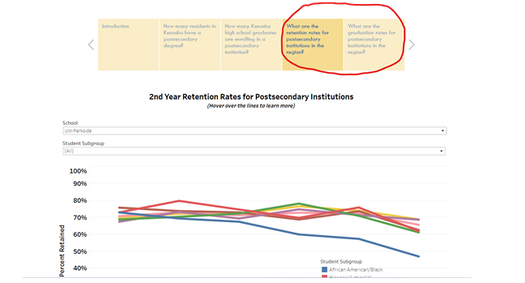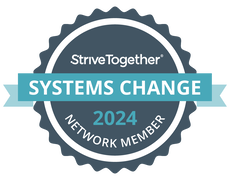|
Building Our Future is thrilled to announce our active engagement in the Equitable Enrollment Collaborative, in partnership with University of Wisconsin-Parkside, Gateway Technical College, Carthage College, Kenosha Unified School District, Racine Unified Schools, and Higher Expectations for Racine County! Together, we're working to remove barriers to college access for regional high school graduates.
What's in the pipeline? We're diving deep into FAFSA completion data, providing monthly updates to local high schools on their 12th-grade class's progress. Our goal? Each participating high school aims to boost their FAFSA completion rate by 5 percentage points from last year, fostering incremental growth over five years. Curious about our journey so far? Peek behind the scenes with our video update! The milestone? We've inked an unprecedented Data Sharing Agreement among all institutions, a testament to our extraordinary collaborative effort. Plus, we rocked a successful FAFSA Summit at UW-Parkside in October, uniting high school reps from KUSD and RUSD! Join us on this transformative mission as we pave smoother pathways for our students into higher education. Together, we're shaping a brighter future for all! Throughout the past few years college graduation and retention rates have not changed as drastically as some of the other cradle to career indicators we share. However, gaps between public and private institutions, and racial, ethnic, and economic groups of students persist. When reviewing graduation and retention rates from local institutions on our College and Career Readiness dashboard, consider the following questions:
What are the factors contributing to students not finishing college? Who plays a role in addressing these factors? Which factors would require the least/most amount of energy and resources to shift? View the data on BOF's website here: https://www.buildingourfuturekc.org/college--career-readiness.html On March 11th, 2021, President Biden signed The American Rescue Plan Act (ARPA) into law. This historic piece of legislation will provide approximately $1.9 trillion in relief and federal investment to address the on-going impacts of the COVID-19 pandemic. This funding has the possibility to transform communities for children and families. As the cradle-to-career backbone for Kenosha County, Building Our Future is well positioned to support entities in leveraging dollars to not only build back better, but build with equity and build to last. The American Rescue Plan Act will bring more than $135 million of flexible funding for children and youth to the Kenosha County community, via City, County, and Village governments; K-12 education systems; and higher education institutions. Building Our Future has created a handout that strives to make this funding easy to understand for partners, advocates, and community members. More detailed national and local dashboards created by Children's Funding Project can be found here.
|
Categories
All
Archives
May 2024
|


